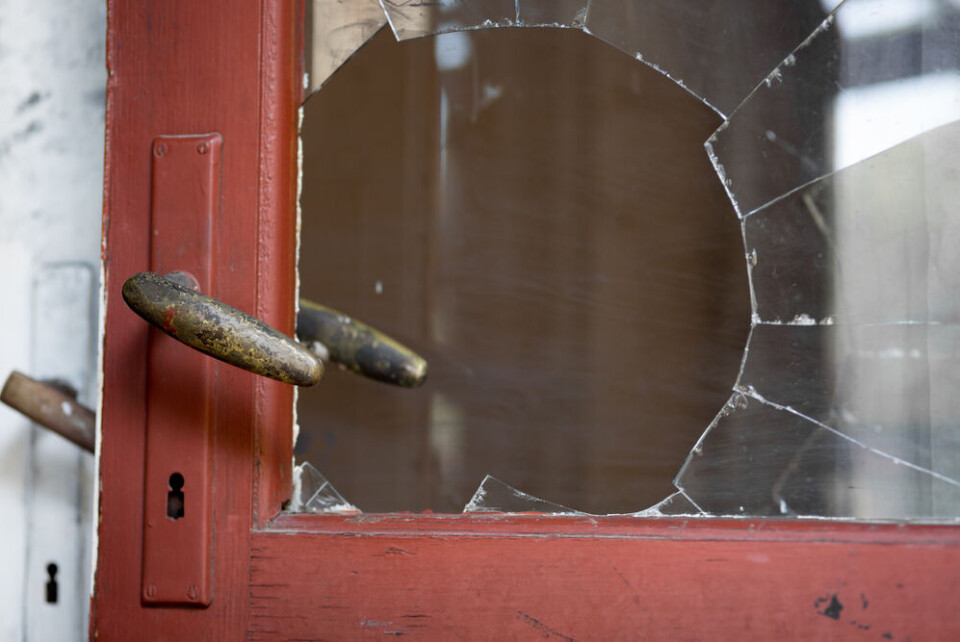-
Transavia to replace Air France for Nice-Orly flights
Up to eight return journeys a day to be offered by the budget carrier
-
Is this the end of free mountain rescue in France?
A new report says that charging for services is ‘legitimate and necessary’
-
How France’s new food strategy aims to change the national diet
The plan outlines new goals for meat consumption
Burglaries, scams, attacks: how crime rates vary across France
New figures from the interior ministry show rates in 2021 were often higher in the north and south-east

France’s interior ministry has published details of the crime rates recorded in each of the country’s regions in 2021.
They show incident numbers rose in most crime categories after the lull of 2020 and the Covid lockdown - and increased most noticeably in northern and southeastern France.
On a national scale, compared with 2020 figures, sexual violence crimes increased by 33%, intrafamilial violence was up 14% and scams were 15% more common.
Some crimes were still in decline in comparison to a ‘normal’ year. While thefts decreased by 24% in 2020, they only rose again by 5% in 2021, for example.
Burglaries did not increase significantly from the 20% drop witnessed the year before, and violent robberies declined even further when compared to the start of the pandemic.
Violent crime rates vary depending on region
The report also showed that crime rates varied considerably across France.
For example, the average number of homicides in metropolitan France was 0.02 per 1,000 inhabitants, in Corsica it was 0.04, and in the overseas territory of French Guiana 0.13.
Assault cases were up 12% across France in 2021, but in Normandy they increased by 18%, and 16% in Hauts-de-France and Grand-Est.
The report states that “four departments alone are behind one fifth of the increase seen on a national level: Nord (victims up by 18%), Paris (up 14%), Bouches-du-Rhône (up 14%) and Rhône (up 15%).”
Similarly, while intrafamilial violence cases rose across France, the increase varied significantly depending on the area. In Lot-et-Garonne, for example, incident numbers rose by 40% compared to 2020.
The general 14% increase was fueled significantly by cases in Nord, which contributed an extra percentage point, Pas-de-Calais and Bouches-du-Rhône with +0.7% each.
Burglaries down due to Covid restrictions
Burglary rates stayed low in 2021 as Covid restrictions kept people at home.
The rate ranges from 1.4 cases per 1,000 homes in Cantal (Auvergne-Rhône-Alpes) to 11.3 per 1,000 in Bouches-du-Rhône.
Vehicle thefts – including motorbikes – also stayed around 2020 levels in general, but, again, varied significantly depending on the area.
Departments such as Aveyron, Cantal, Corrèze and Creuse saw very low rates, while incidents were more common in Paris, Nord, Pas-de-Calais, Gironde and Hérault.
Some also saw a marked increase when compared to 2020, with incident numbers rising by 38% in Loir-et-Cher, 27% in Meuse, 21% in Orne and 18% in Vendée.
Why are crime rates higher in northern and southeastern France?
Bouches-du-Rhône is often high up the list of departments with the fastest rising incident numbers for certain offences, and this can be at least in part attributed to the fact that it is home to the city with one of the highest crime rates: Marseille.
Paris also has a high incidence of criminal activity, as do its neighbouring towns and suburbs, including Seine-Saint-Denis and Chambly in Oise (Hauts-de-France).
Nord may also feature regularly among the departments with the highest crime rates because it has a large, relatively young population and a struggling economy that once relied heavily on the now-defunct coal mining industry.
The interior ministry report can be viewed here.
Related stories:
French police investigate after attack by escaped ‘Pyrenees cannibal’
Nîmes tops list of best towns in France for people to retire in
Warning over scammers pretending to be from French finance ministry
























